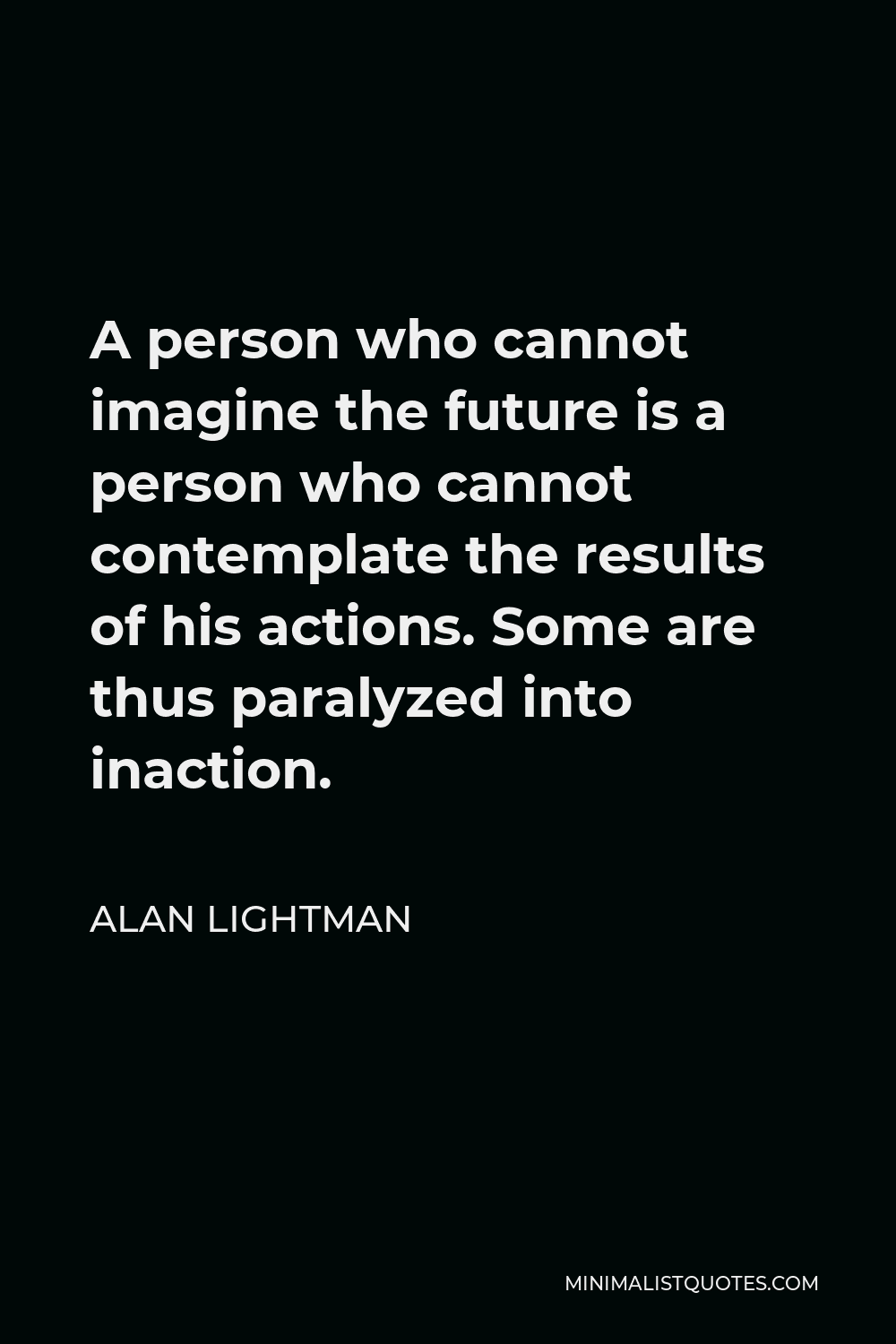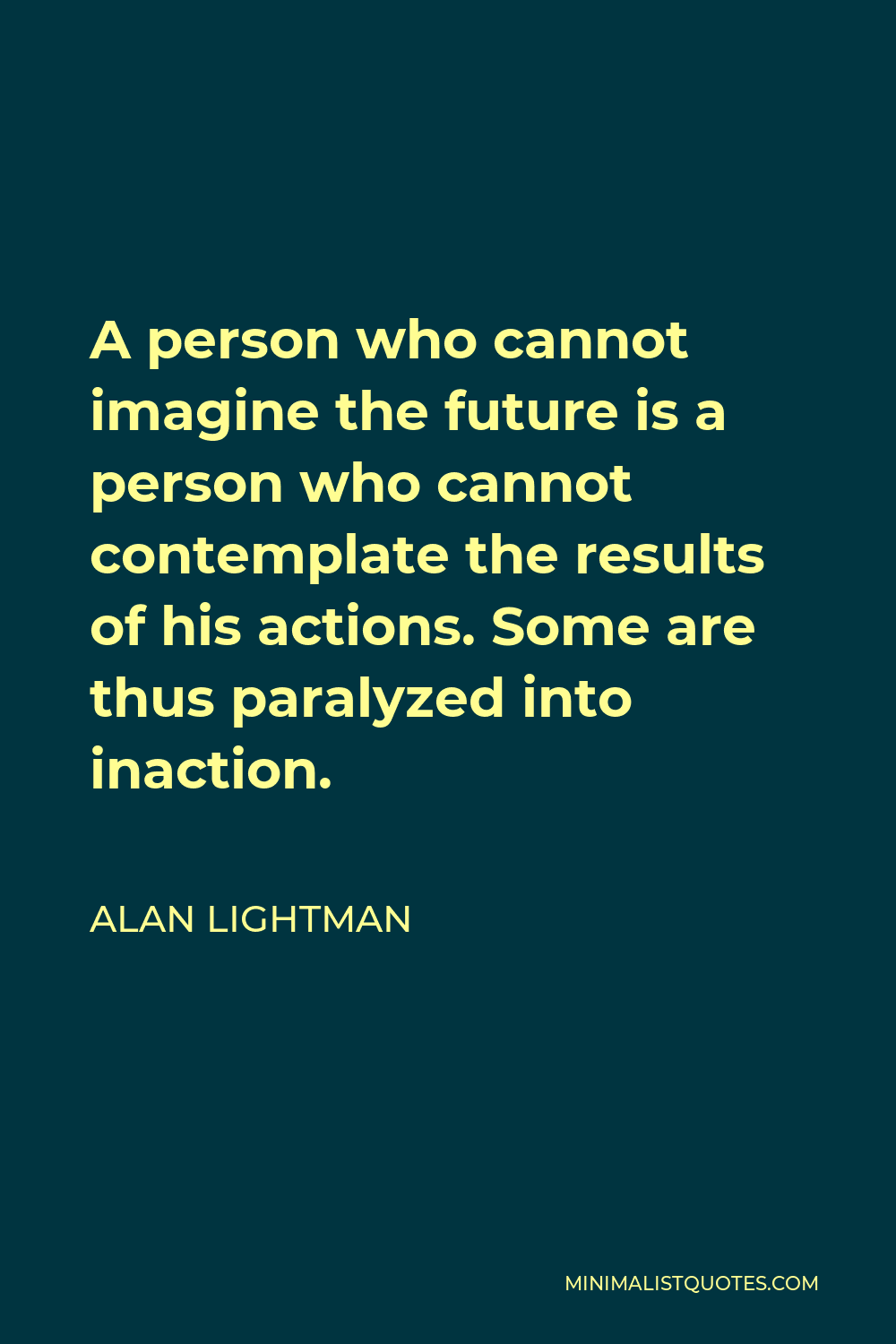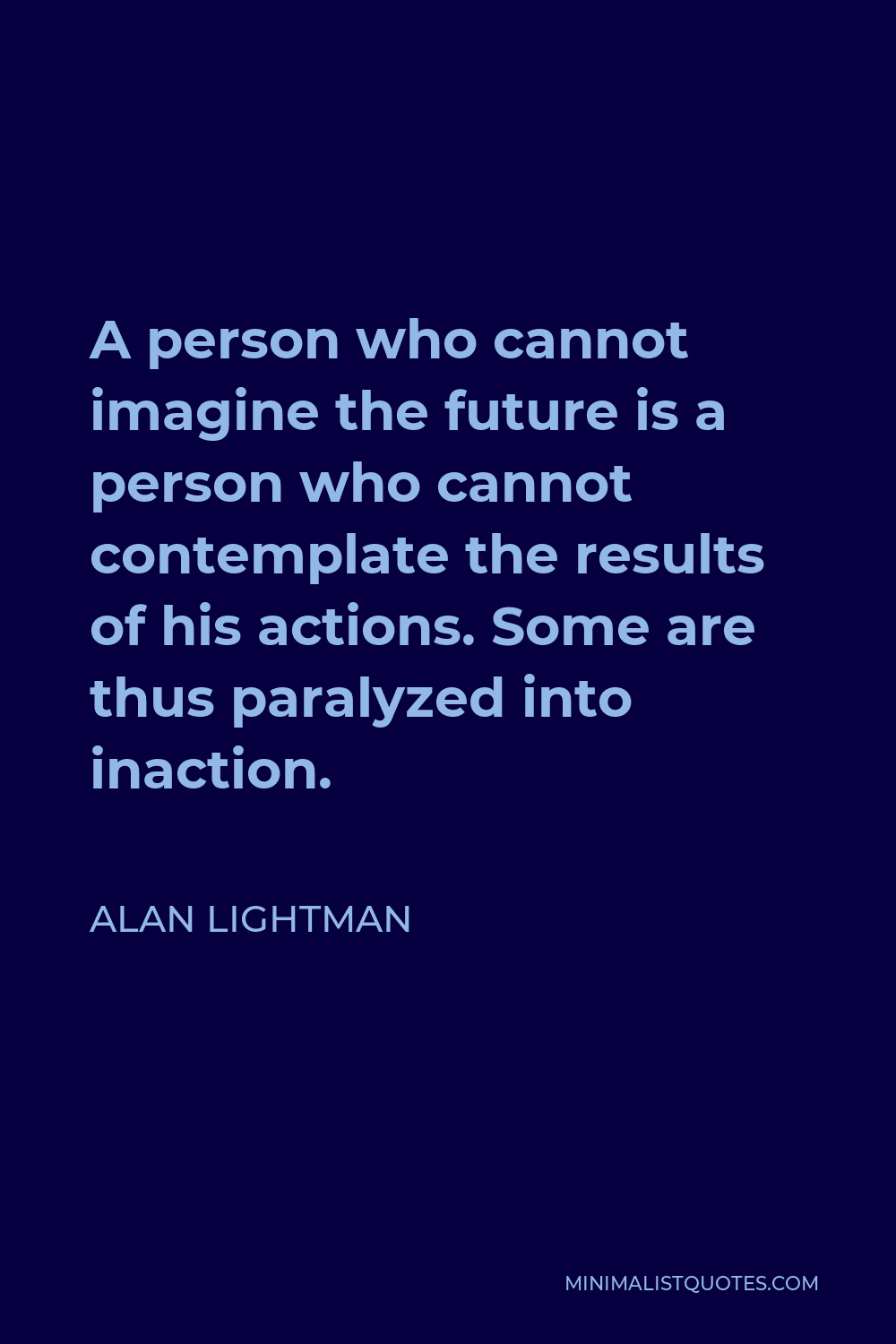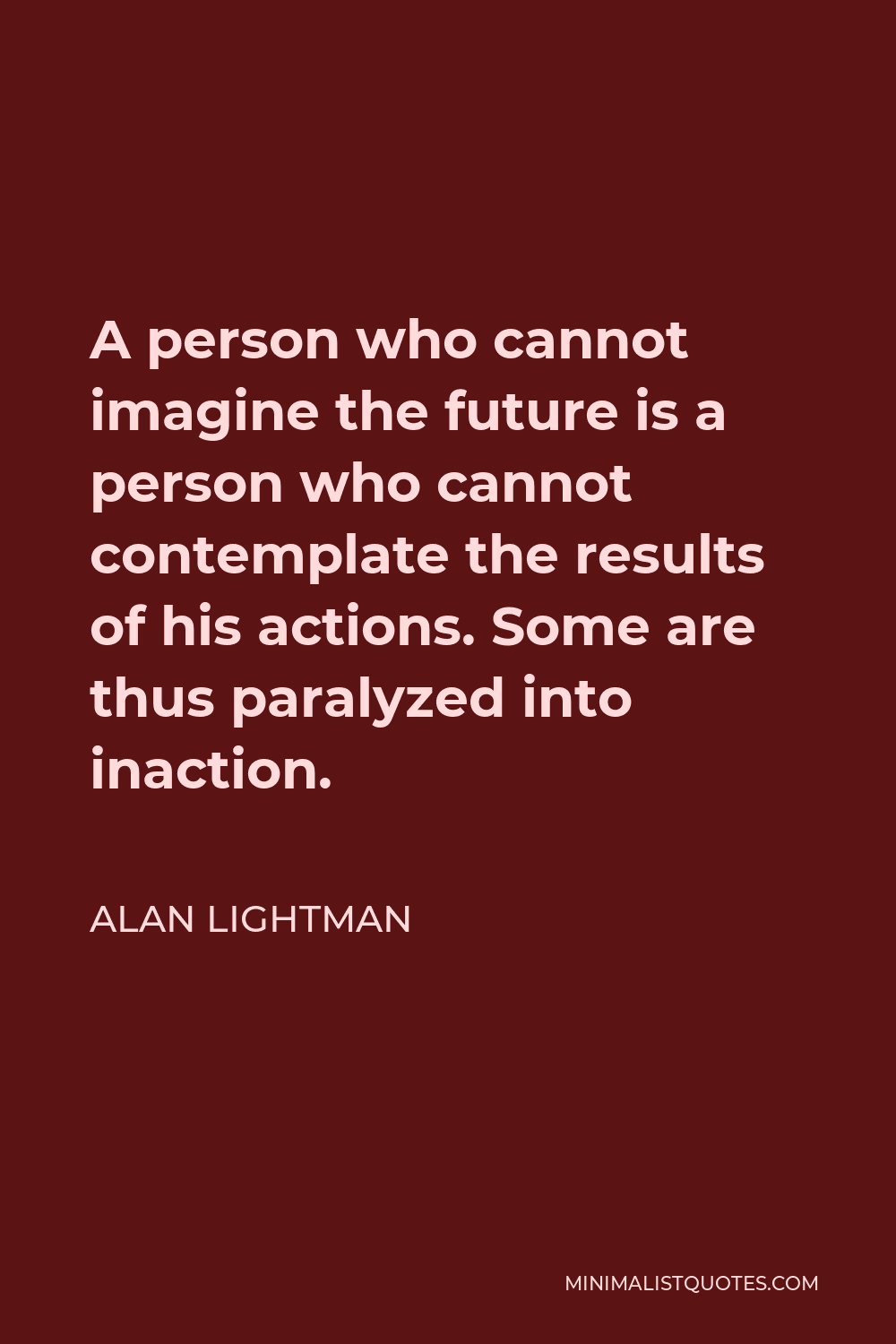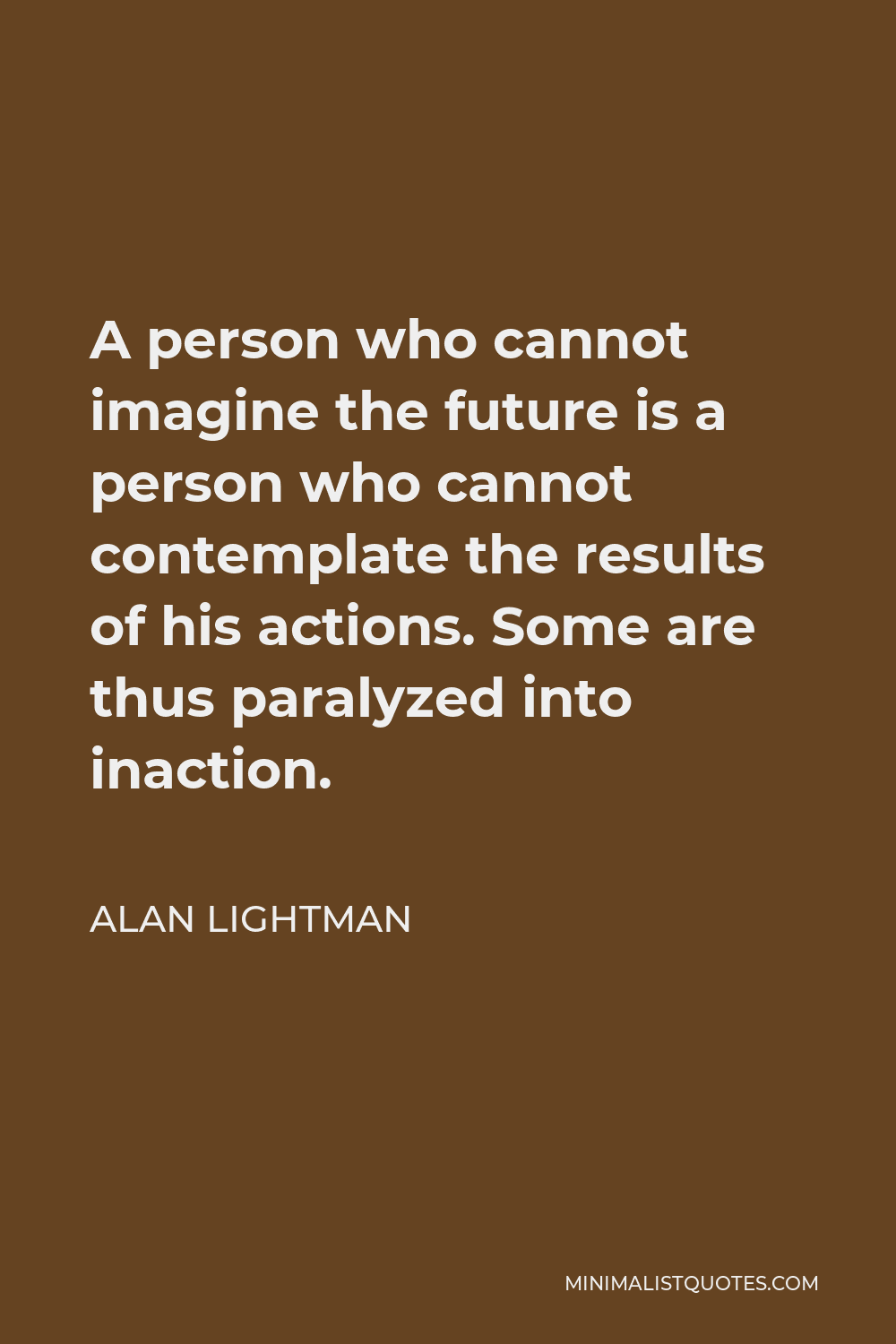It is a world in which every word spoken speaks just to that moment, every glance given has only one meaning, each touch has no past or no future, each kiss is a kiss of immediacy.
ALAN LIGHTMANA person who cannot imagine the future is a person who cannot contemplate the results of his actions. Some are thus paralyzed into inaction.
More Alan Lightman Quotes
-





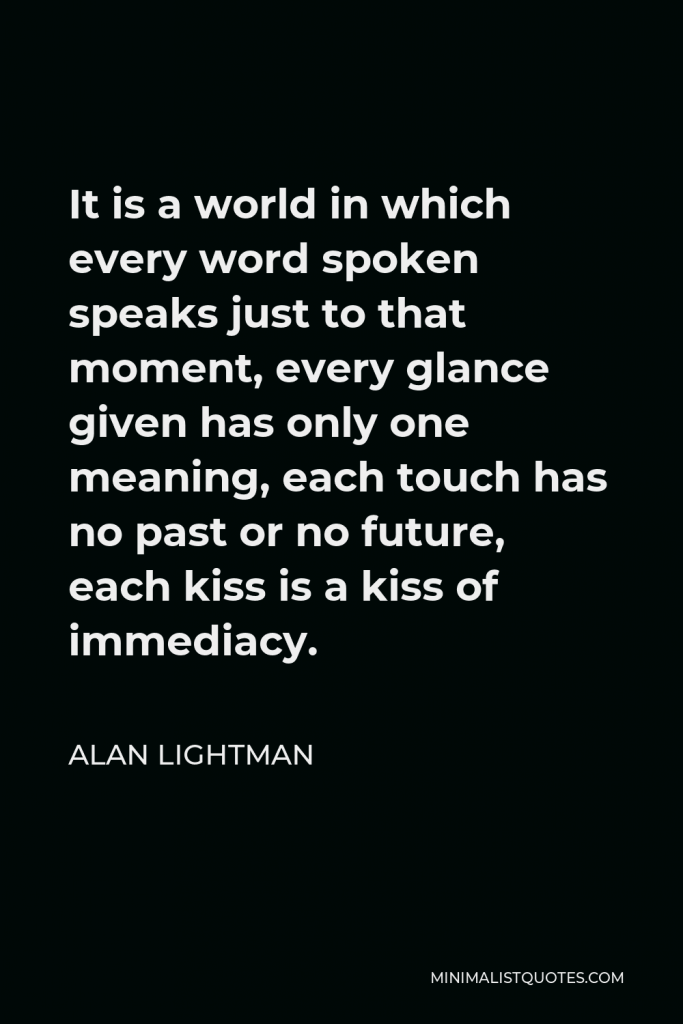

-





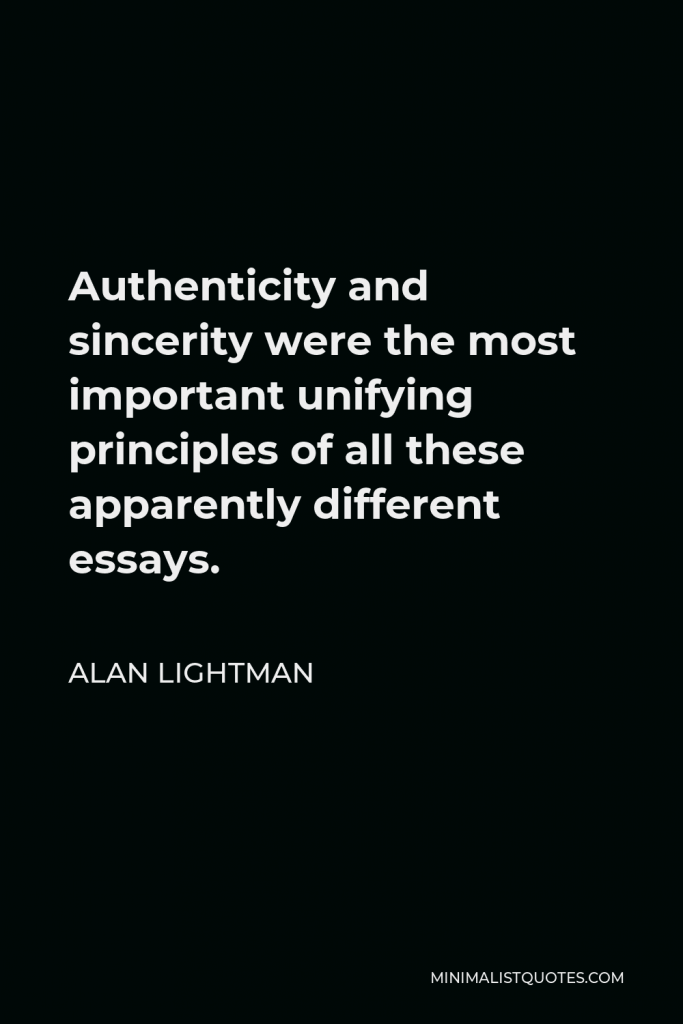

Authenticity and sincerity were the most important unifying principles of all these apparently different essays.
ALAN LIGHTMAN -





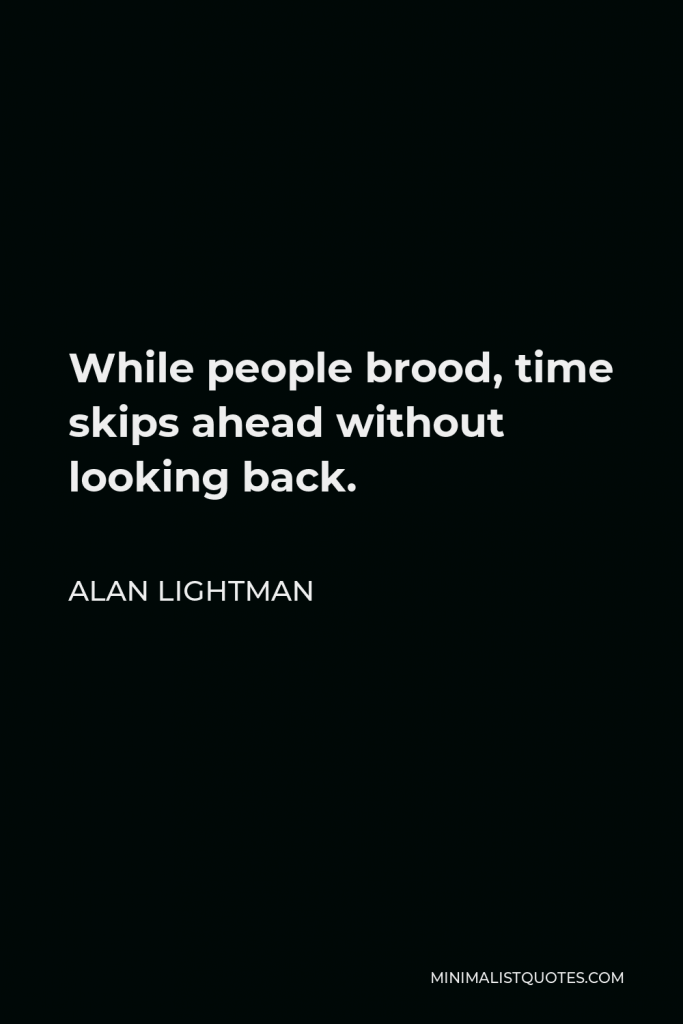

While people brood, time skips ahead without looking back.
ALAN LIGHTMAN -





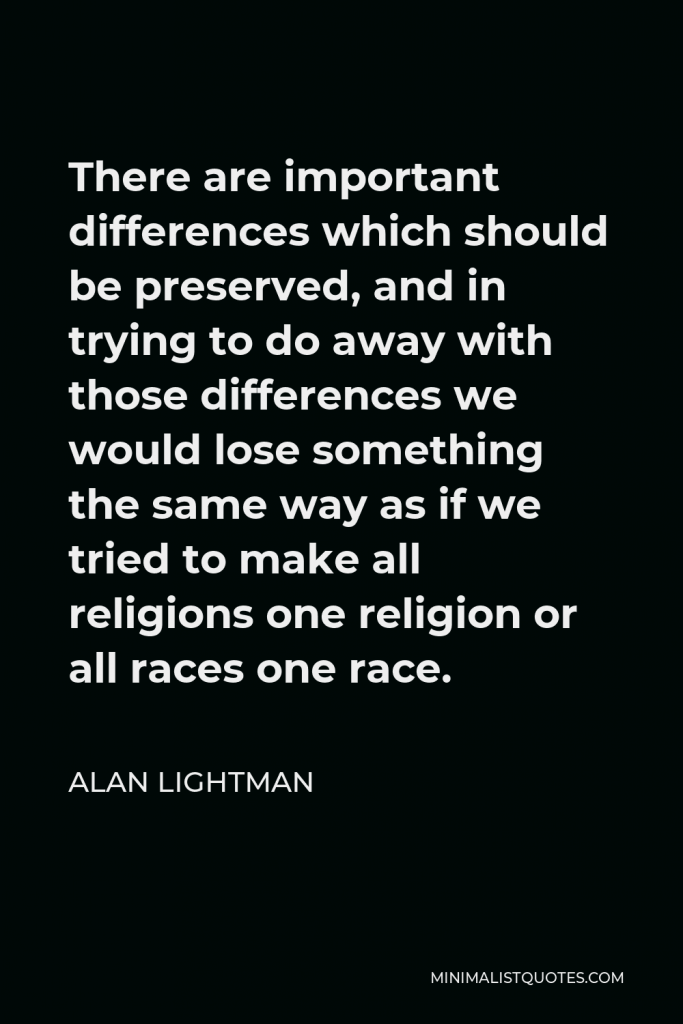

There are important differences which should be preserved, and in trying to do away with those differences we would lose something the same way as if we tried to make all religions one religion or all races one race.
ALAN LIGHTMAN -





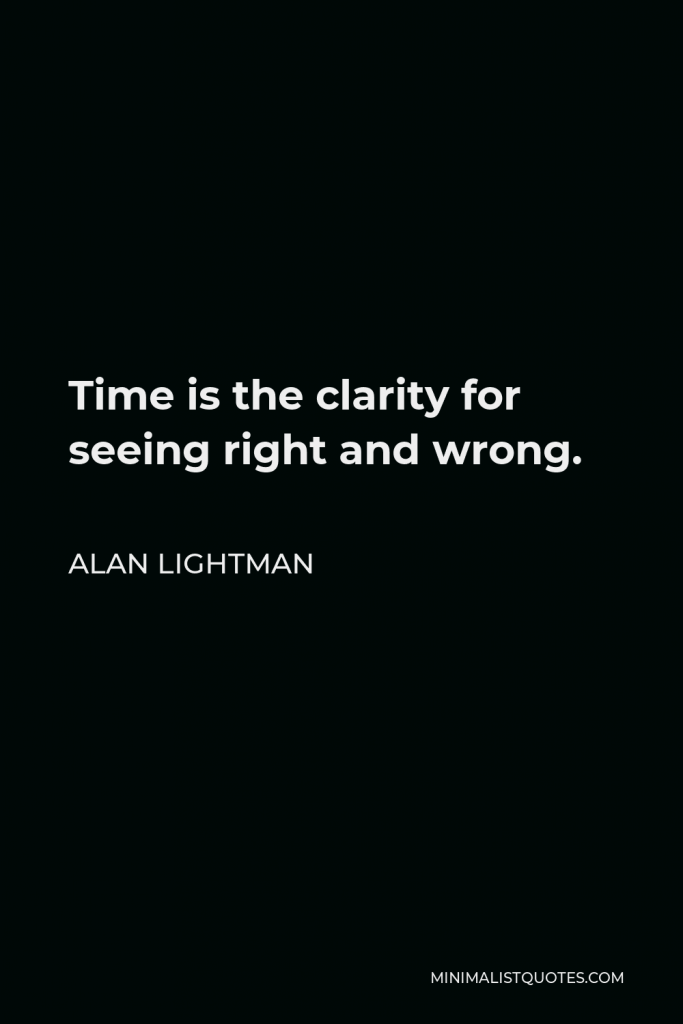

Time is the clarity for seeing right and wrong.
ALAN LIGHTMAN -





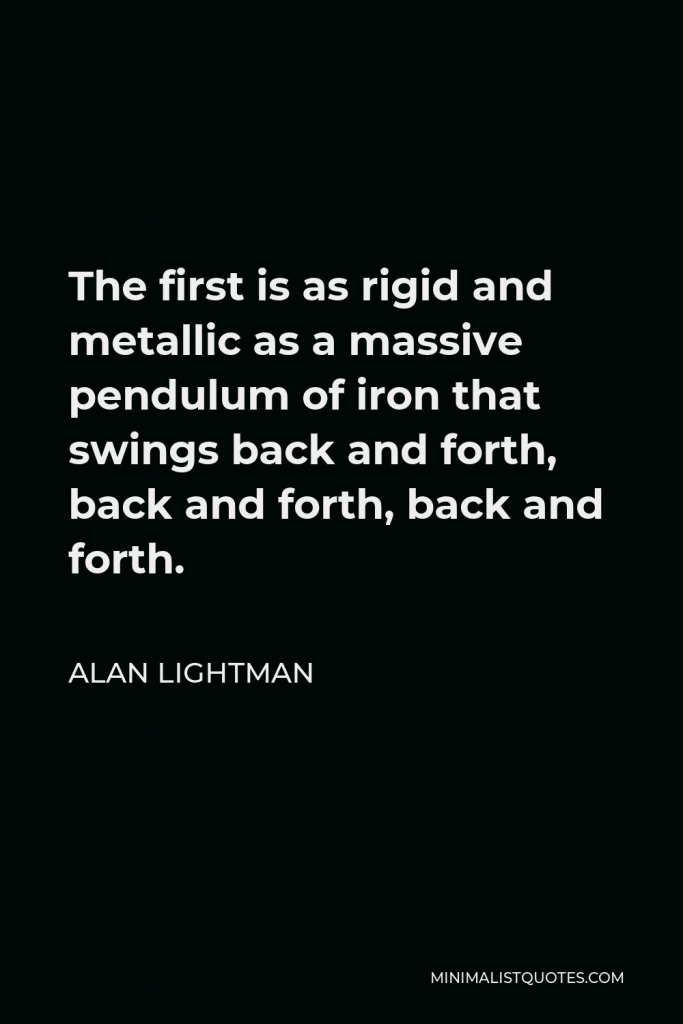

The first is as rigid and metallic as a massive pendulum of iron that swings back and forth, back and forth, back and forth.
ALAN LIGHTMAN -





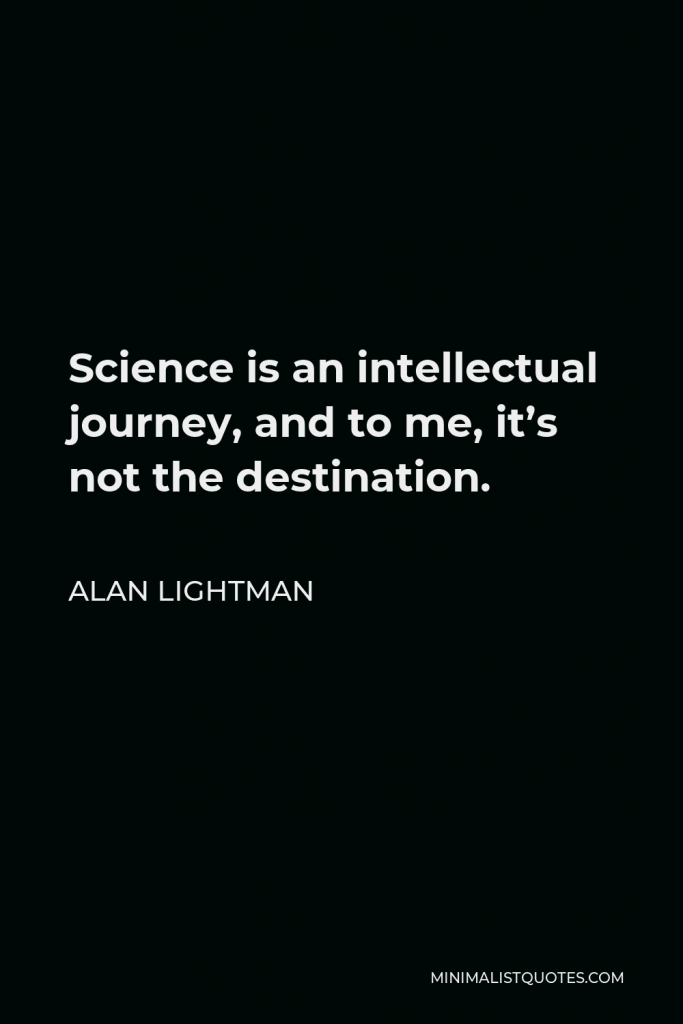

Science is an intellectual journey, and to me, it’s not the destination.
ALAN LIGHTMAN -





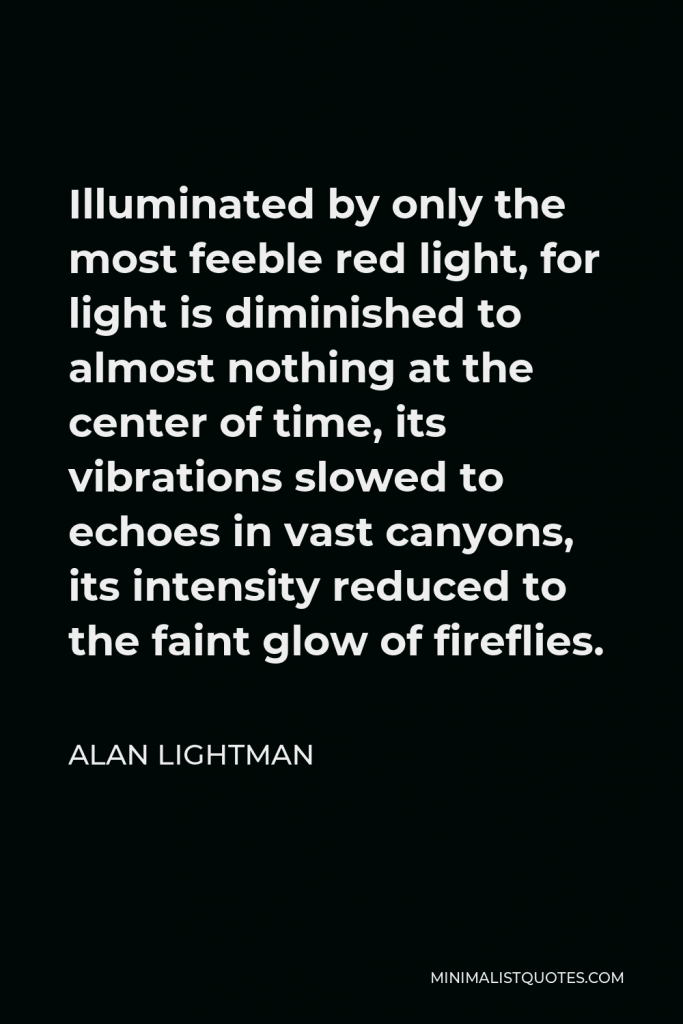

Illuminated by only the most feeble red light, for light is diminished to almost nothing at the center of time, its vibrations slowed to echoes in vast canyons, its intensity reduced to the faint glow of fireflies.
ALAN LIGHTMAN -





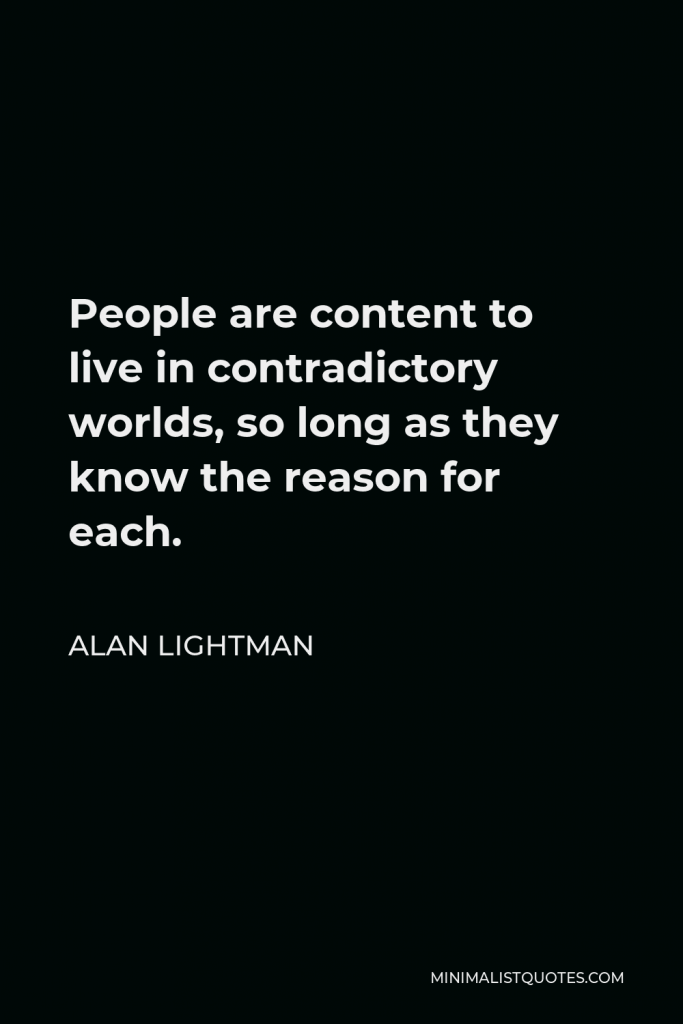

People are content to live in contradictory worlds, so long as they know the reason for each.
ALAN LIGHTMAN -





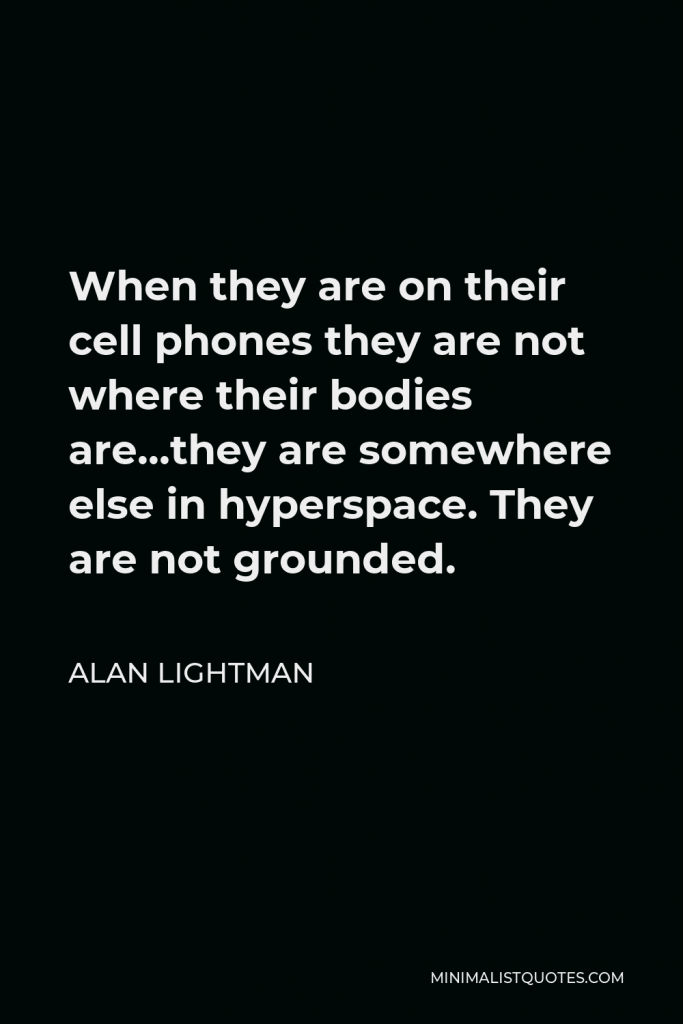

When they are on their cell phones they are not where their bodies are…they are somewhere else in hyperspace. They are not grounded.
ALAN LIGHTMAN -





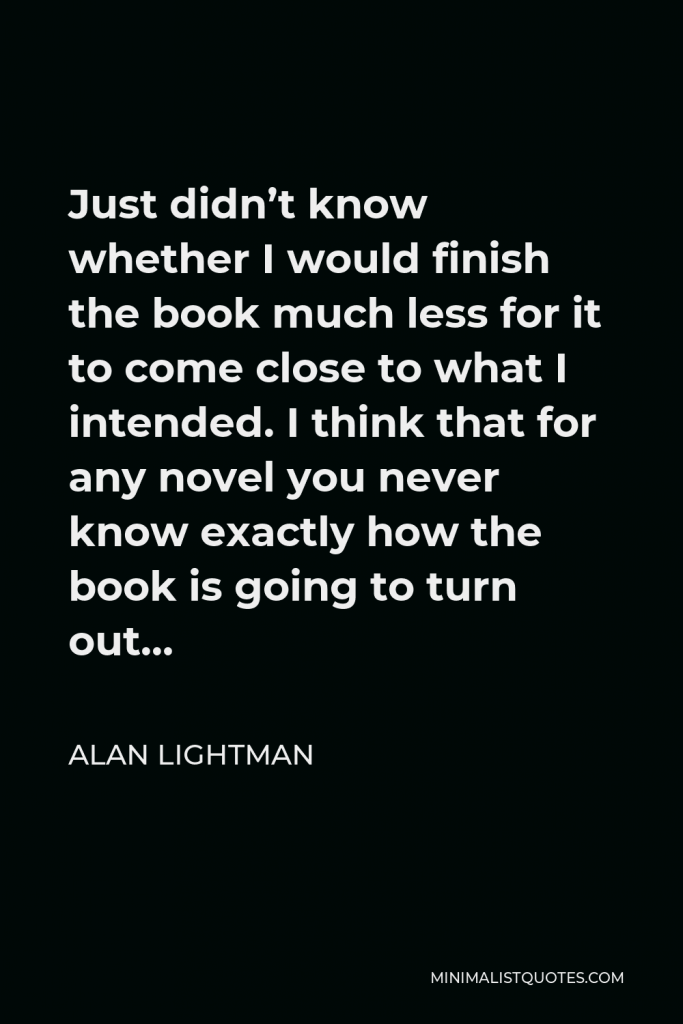

Just didn’t know whether I would finish the book much less for it to come close to what I intended. I think that for any novel you never know exactly how the book is going to turn out…
ALAN LIGHTMAN -





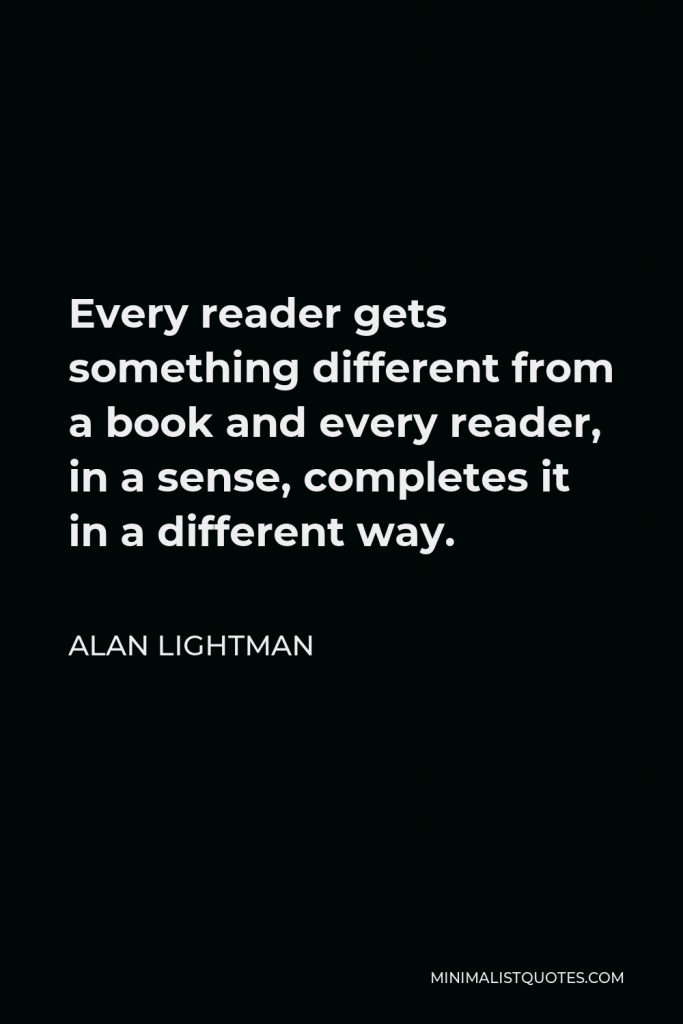

Every reader gets something different from a book and every reader, in a sense, completes it in a different way.
ALAN LIGHTMAN -





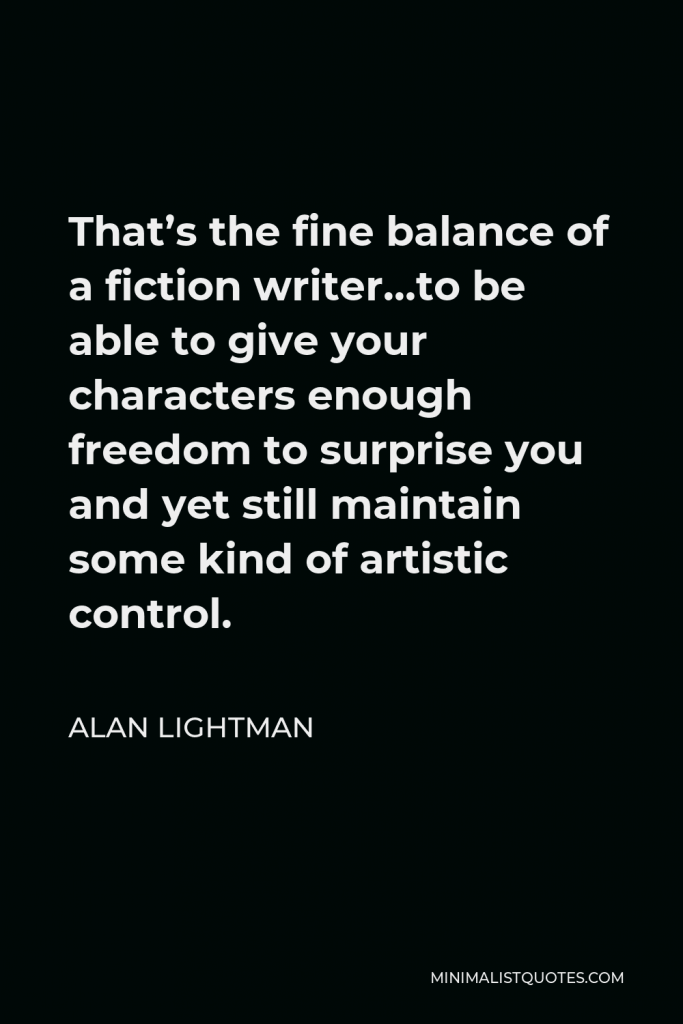

That’s the fine balance of a fiction writer…to be able to give your characters enough freedom to surprise you and yet still maintain some kind of artistic control.
ALAN LIGHTMAN -





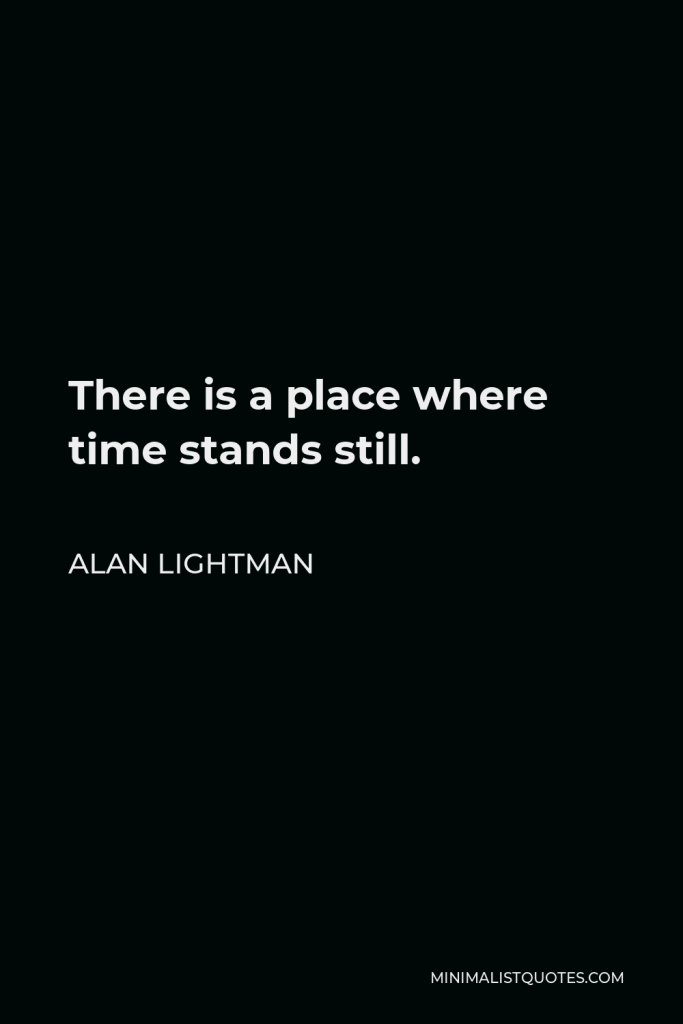

There is a place where time stands still.
ALAN LIGHTMAN -





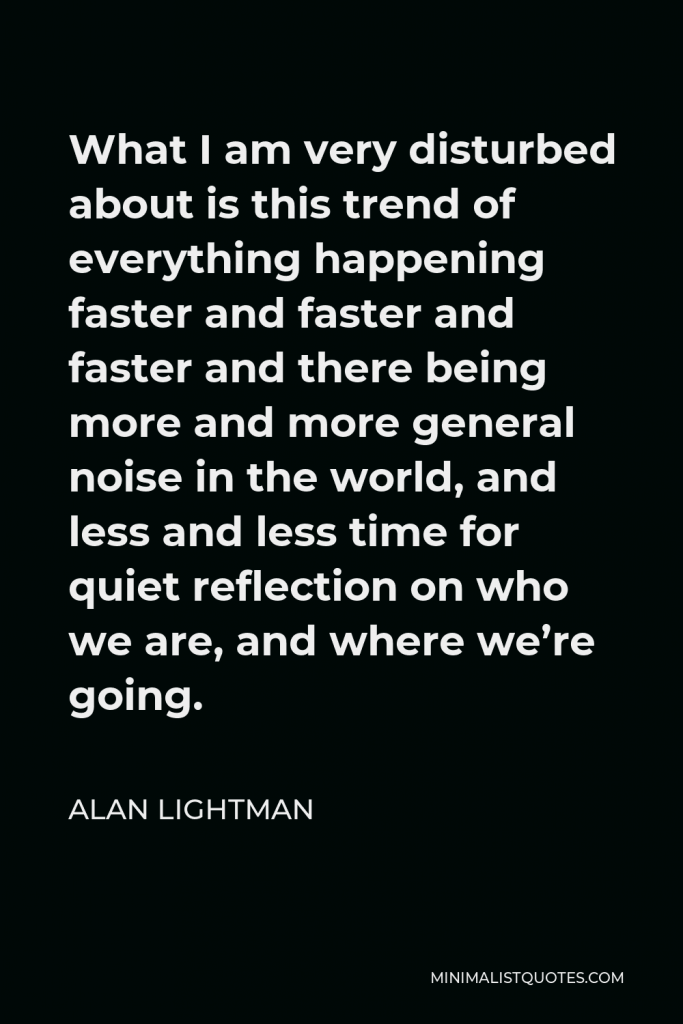

What I am very disturbed about is this trend of everything happening faster and faster and faster and there being more and more general noise in the world, and less and less time for quiet reflection on who we are, and where we’re going.
ALAN LIGHTMAN -





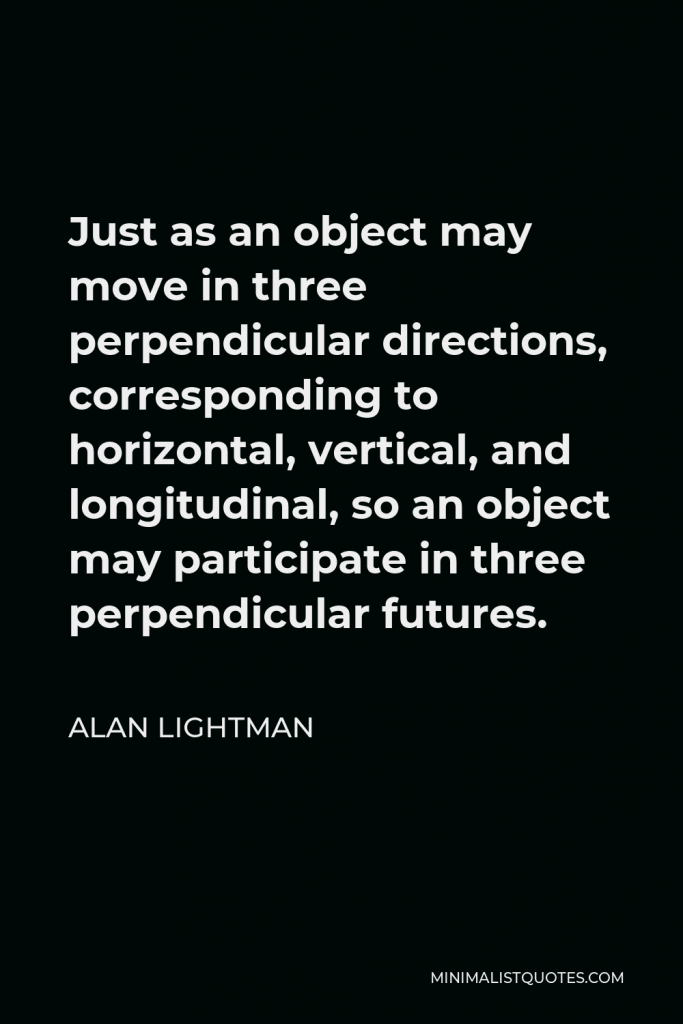

Just as an object may move in three perpendicular directions, corresponding to horizontal, vertical, and longitudinal, so an object may participate in three perpendicular futures.
ALAN LIGHTMAN
